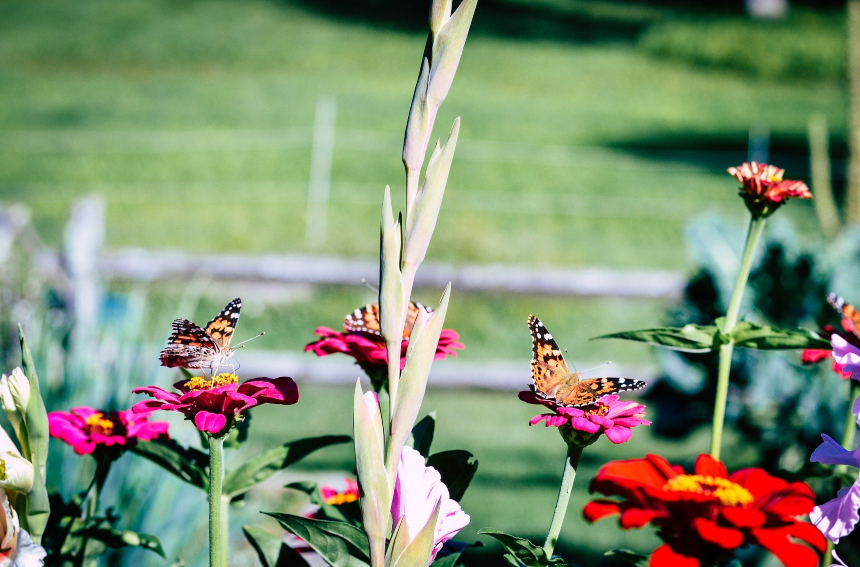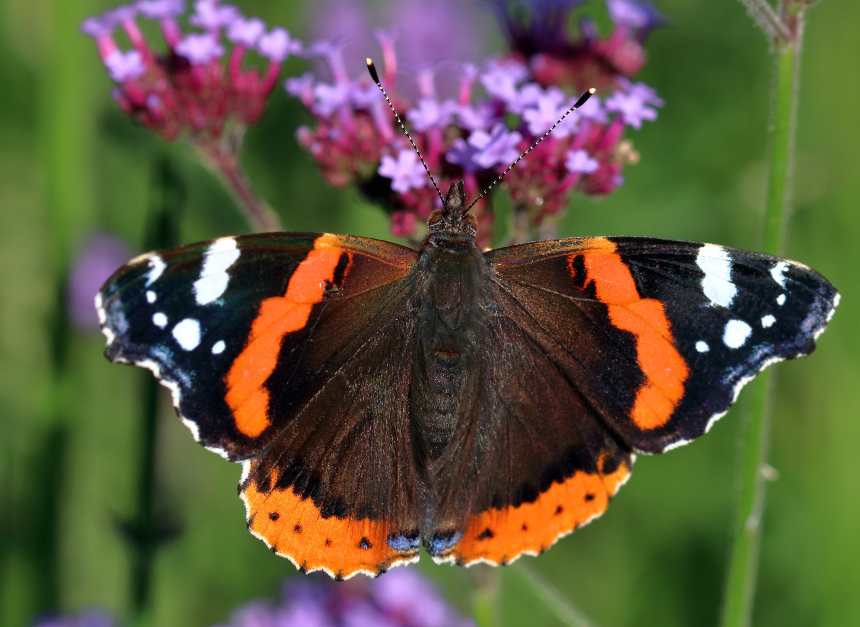Painted Lady butterflies are nomads. They carry out a 7.500-mile round trip from tropical Africa to the Arctic Circle every year. They cover up to 100 miles per day at an altitude of up to 3,000 feet and a maximum speed of 30mph. They are the most widely distributed butterfly in the world.
It is usually the children of the original migrants that arrive in the UK in May, having been born on route, in Spain, and then it is a third generation that return South in September.
In the record-breaking heat, the National Trust attributed the butterfly boom, one of the nature highlights of the year, to climate change. Painted Lady butterflies were among many migrants and plants that enjoyed a bumper year.

A group of visiting Painted Lady butterflies.
Image: Veronica Bosley via Pixabay






kate Burbidge
saysI work in a retirement home and the rising number of residents with dementia grows. So sad to see them shut in their rooms, isolated from their loved ones. It breaks my heart. I do my best to make them laugh.
Tinus van Rensburg
saysTony there are somany folks in the same boat. Im 75 and my wife Marleta in an altzheimers frail care. I have written 5 poem books mostly Afrikaans but in my deepest hurt i wrote THE LONGEST GOODBYE and. I THE CARER
I am in confinement and have seen my wife once since lockdown. THE LORD IS MY SHEPERD.
Sandra Hall
saysbeautiful poem Tony, so pleased the writing is helping you in such a difficult situation, hopefully you may be able to visit Sheila in the not too distant future X Sandra
Rosemary Elliott
saysA beautiful and poignant poem that expresses Tony's deep and continuing love for Sheila, as well as the pain of their situation exacerbated during lockdown, but also the hope of new life together in a world without suffering. I love the symbolism of the butterfly and all the explanations add colour and depth to one's understanding of the poem. I can imagine Sheila painting illustrations to the poem and delighting in the butterflies in their beloved garden.
Dinah Taylor
saysAnother meaningful poem by this talented man, also a friend. Like many others who have close friends in care homes I feel cheated of the time we might share. Going for a walk and stopping for tea and cake is no longer possible. I miss Sheila too but it is reassuring to see her smile on WhatsApp. Tony's words are a powerful testimony to his love.